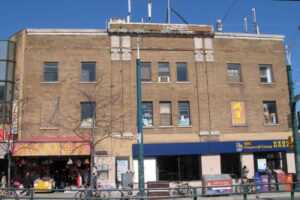Bill 78, passed in 2012 in Montreal, has garnered a significant amount of attention both domestically and internationally. With ramifications on the right to protest and civic freedoms, it has become a point of concern for various institutions, including the UN Human Rights Council. But what’s the buzz all about? And why is it causing such an uproar?
The Nitty-Gritty of Bill 78
If you’re not knee-deep in political happenings, you might be scratching your head about Bill 78. Well, pull up a chair, and let’s get down to brass tacks! Bill 78 was passed as a response to student protests against tuition fee hikes. The law restricted the right to public assembly and made it mandatory to provide an eight-hour notice before holding a public demonstration, with details on the route, time, and other specifics.
Sounds a bit controlling, doesn’t it? Many thought so. In fact, it stirred a hornet’s nest. Demonstrators were required to stick to the declared route and any deviation led to hefty fines.
The International Outcry: Enter the UN Human Rights Council
When the UN Human Rights Council enters the fray, you know things have taken a serious turn. The Council raised eyebrows at Bill 78, expressing concerns over how the law may infringe on the basic human rights of free assembly and expression. But why did the UN get involved? In essence, the freedom to protest peacefully is seen as a cornerstone of democratic societies.
While the local administration believed the law was necessary to maintain order, the UN’s concerns were rooted in the global understanding of civil liberties. The council pondered, Is it justified to curtail freedoms for the sake of order, especially when the order in question concerns peaceful student protests?
Public Perception: The Tide of Opinion
If there’s one thing you can’t put a lid on, it’s public opinion. The streets of Montreal echoed with the voices of thousands who believed their rights were being trampled upon.
- Mass Demonstrations: The law ironically led to more demonstrations, often spontaneous, breaking the very rules it set.
- Symbolic Acts: Citizens wore red squares, symbolizing their opposition and solidarity with the protesting students.
- Vocal Disapproval: Many took to platforms, from local radio shows to international media outlets, to air their grievances and concerns.
Bill 78’s Aftermath: Ripples in the Water
In the wake of Bill 78, Montreal and the broader Quebec region grappled with the consequences.
- Legal Battles: Many challenged the law in courts, leading to an exhaustive legal tug of war.
- Political Ramifications: Bill 78 wasn’t just a legal issue; it became a hot potato in political circles. Parties and leaders took definitive stances, either in favor or against, shaping their political futures.
- Civic Engagement: On the brighter side, the bill spurred heightened civic engagement. Many who were previously apolitical began actively participating in local governance and dialogues.
Looking Beyond: The Legacy of Bill 78
Years have passed since the enactment of Bill 78, but its legacy remains. For some, it’s a painful reminder of the curbing of civil liberties. For others, it’s a testament to the resilience of Montreal’s residents. The bill has certainly etched a mark on Montreal’s history, becoming a topic of discussion in academic circles, political debates, and among human rights advocates.
So, what’s the takeaway? Societies are ever-evolving, and laws like Bill 78 remind us of the delicate balance between order and freedom. It’s a dance, sometimes clumsy, sometimes graceful, as cities like Montreal navigate the complex world of governance, public sentiment, and human rights.
External Resources:







